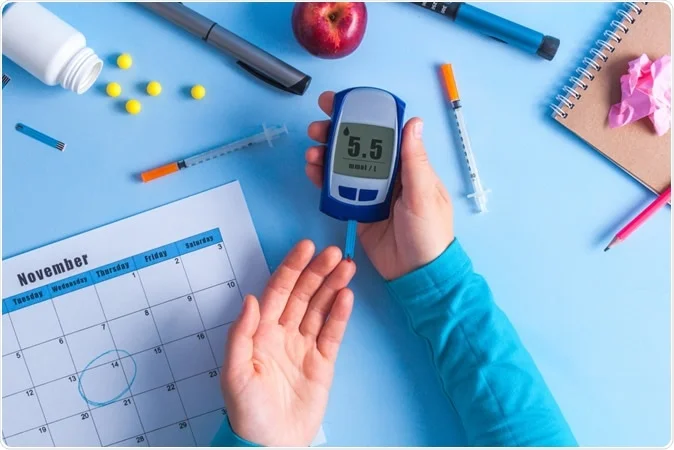When it comes to managing diabetes effectively, it is crucial to adhere to the established guidelines for diabetes treatment. These guidelines serve as a roadmap for healthcare professionals and individuals living with diabetes, providing evidence-based recommendations for optimal care. By understanding and implementing these guidelines, individuals can better control their blood sugar levels, reduce the risk of complications, and improve their overall quality of life. In this article, we will explore the key guidelines for diabetes treatment, covering various aspects of self-care, medication management, and lifestyle modifications.
Table of Contents
Importance of Guidelines for Diabetes Treatment
The guidelines for diabetes treatment play a pivotal role in ensuring consistent and standardized care for individuals with diabetes. They are developed based on rigorous research, clinical trials, and expert consensus, taking into account the latest advancements in diabetes management. These guidelines serve as a comprehensive framework for healthcare providers, empowering them to make informed decisions regarding treatment options, monitoring parameters, and preventive measures.
By following these guidelines, healthcare professionals can provide the best possible care and support to their patients, while individuals with diabetes can gain valuable insights into self-care practices and treatment strategies. Adhering to the guidelines helps promote uniformity in diabetes care, enhances treatment outcomes, and reduces the variability in clinical practice.
Individualized Treatment Approach
One of the fundamental principles of diabetes management is the adoption of an individualized treatment approach. While guidelines for diabetes treatment provide overarching recommendations, it is essential to recognize that each person’s needs and circumstances are unique. Healthcare professionals must consider factors such as age, comorbidities, lifestyle, and personal preferences when formulating a treatment plan. Individualization ensures that treatment aligns with the specific requirements of the individual, optimizing the effectiveness of diabetes management.By embracing an individualized treatment approach, individuals can navigate their diabetes journey with confidence, guided by the established guidelines for diabetes treatment.
By tailoring treatment to suit the individual, healthcare providers can address specific challenges, minimize barriers to adherence, and achieve better glycemic control. This personalized approach also empowers individuals with diabetes, as they become active participants in their own care, making informed decisions and taking ownership of their health.
Glycemic Targets and Monitoring
Establishing glycemic targets is a crucial component of diabetes treatment. Guidelines for diabetes treatment provide recommendations regarding optimal blood sugar levels to aim for, both fasting and after meals. These targets are based on evidence from clinical trials and are designed to minimize the risk of complications while maintaining a good quality of life. Regular monitoring of blood glucose levels is essential to assess the effectiveness of treatment, identify patterns, and make necessary adjustments.
Self-monitoring of blood glucose (SMBG) using a glucose meter is a common method employed for this purpose. By closely monitoring blood sugar levels, individuals can gain insights into their diabetes management, detect any fluctuations or abnormalities, and take appropriate action promptly. Monitoring helps in achieving and maintaining target blood glucose levels, reducing the risk of acute and long-term complications.By closely monitoring glycemic targets as outlined in the guidelines for diabetes treatment, individuals can optimize their blood sugar control.
Medication Management
Medication management is a critical aspect of diabetes treatment, and the guidelines provide valuable recommendations in this regard. Depending on the type of diabetes and individual needs, medications may be prescribed to achieve glycemic control. For type 1 diabetes, insulin therapy is the mainstay of treatment, whereas type 2 diabetes may involve oral antidiabetic medications, injectable medications, or a combination of these. The guidelines outline various medication classes, their mechanisms of action, and indications, helping healthcare professionals make informed decisions about prescription choices.
It is important for individuals to adhere to their prescribed medication regimen, follow the recommended dosages, and be aware of potential side effects or interactions. Regular communication between healthcare providers and patients is essential to ensure medication management is optimized and tailored to the individual’s specific needs.By utilizing smart pens, individuals can effectively adhere to the guidelines for diabetes treatment and streamline their medication management.
Importance of Lifestyle Modifications
In addition to medication management, lifestyle modifications form a crucial part of diabetes treatment. The guidelines emphasize the significance of adopting a healthy lifestyle, which includes regular physical activity, a balanced diet, weight management, and smoking cessation. Engaging in regular exercise helps improve insulin sensitivity, lowers blood glucose levels, and contributes to overall cardiovascular health. A nutritious diet that focuses on portion control, the inclusion of whole foods, and limited consumption of sugary or processed foods aids in glycemic control and weight management.
Maintaining a healthy body weight is essential, as excess weight can contribute to insulin resistance and make blood sugar management more challenging. Smoking cessation is vital, as smoking not only increases the risk of diabetes complications but also interferes with the efficacy of certain medications. Lifestyle modifications, when coupled with medication management, significantly contribute to achieving and maintaining optimal glycemic control. By following the guidelines for diabetes treatment, individuals can embrace lifestyle modifications that pave the path to healthier living.
Self-Care Practices
Self-care practices are integral to effective diabetes management. The guidelines highlight the importance of regular self-monitoring of blood glucose levels, foot care, and emotional well-being. Self-monitoring allows individuals to track their blood sugar levels, recognize patterns, and make appropriate adjustments to their treatment plans. Proper foot care, including regular inspection, moisturization, and wearing suitable footwear, helps prevent complications such as diabetic foot ulcers. Emotional well-being plays a crucial role in diabetes management, as stress can affect blood sugar levels. Self-care practices such as stress management techniques, adequate sleep, and seeking support from healthcare professionals or support groups contribute to better emotional well-being.
By actively engaging in self-care practices, individuals can take control of their diabetes management, minimize the risk of complications, and lead a healthier and more fulfilling life. By following the self-care practices outlined in the guidelines for diabetes treatment, individuals can prioritize their well-being and diabetes management effectively.
Conclusion – Guidelines For Diabetes Treatment
Mastering the guidelines for diabetes treatment is essential for both healthcare professionals and individuals living with diabetes. These guidelines serve as a valuable resource, providing evidence-based recommendations for optimal diabetes care. By adhering to these guidelines, healthcare professionals can provide standardized and personalized care, while individuals can gain insights into self-care practices and treatment strategies. The guidelines cover various aspects of diabetes management, including individualized treatment approaches, glycemic targets and monitoring, medication management, lifestyle modifications, and self-care practices.
By integrating these guidelines into clinical practice and daily life, individuals with diabetes can achieve and maintain optimal glycemic control, reduce the risk of complications, and enhance their overall well-being. It is crucial for healthcare professionals and individuals alike to stay updated with the latest guidelines to ensure the best possible outcomes in diabetes treatment.
Learn about: Embrace innovation and stay ahead in the ever-evolving healthcare landscape with PWC Healthcare Trends 2023.




